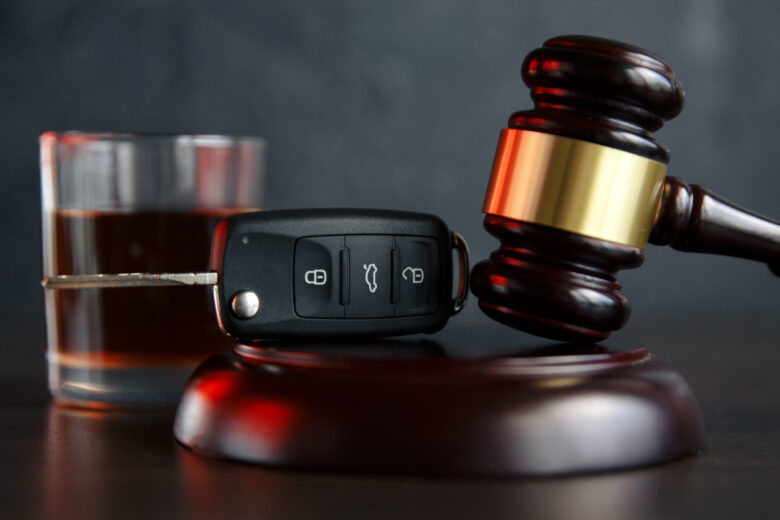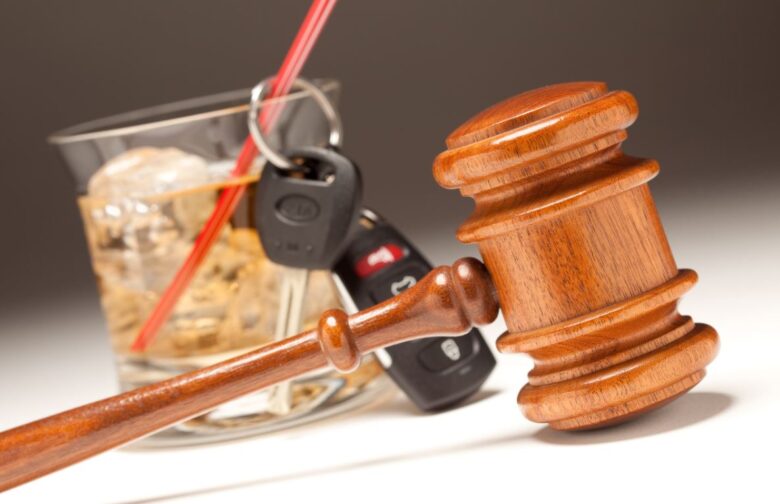Understanding the differences between DUI, DWI, and OWI is essential. DUI stands for Driving Under the Influence of alcohol or substances, leading to severe penalties like fines and jail time. DWI, or Driving While Intoxicated, specifically involves a BAC over 0.08%, similarly resulting in harsh consequences.
OWI, or Operating While Intoxicated, covers impairment from both alcohol and other substances, even if BAC is below the legal limit. Each state varies in definitions and penalties. Knowing these distinctions can help you better navigate legal hurdles and protect your rights more effectively. For a deeper insight into these charges, visit Noll Law Office.
Contents
Defining DUI

Source: addictionrehabtoronto.ca
A DUI, or ‘Driving Under the Influence,’ refers to operating a vehicle while impaired by alcohol or other substances, which can greatly compromise your ability to drive safely. It’s essential to understand the severe DUI penalties you might face. Consequences include hefty fines, license suspension, and even jail time, depending on the severity and whether it’s a repeat offense. These penalties are designed to deter individuals from driving under the influence and to maintain public safety.
To avoid falling into this legal quagmire, consider DUI prevention strategies. Always plan for a designated driver or use ride-sharing services if you know you’ll be drinking. It’s also wise to understand your own limits and the impact of substances on your driving abilities. Prevention doesn’t just save you from legal troubles; it can save lives.
DUI charges aren’t to be taken lightly. They carry significant social and financial repercussions, not to mention the potential for causing harm to yourself and others. By being informed and proactive, you can protect your rights and avoid the far-reaching consequences of a DUI conviction. Remember, prevention is always better than facing severe penalties.
Understanding DWI

Source: serenitylightrecovery.com
Driving While Intoxicated (DWI) specifically refers to operating a vehicle with a blood alcohol concentration (BAC) over the legal limit, and it’s important to understand how this offense differs from a DUI. While DUI can sometimes encompass driving under the influence of drugs or alcohol, DWI is typically more stringent, focusing solely on alcohol intoxication levels.
When you’re charged with a DWI, the prosecution’s primary evidence often includes your BAC, which must exceed the statutory limit, usually 0.08%. However, don’t overlook the role of sobriety tests. Field sobriety tests are commonly used by law enforcement to determine impairment. These tests assess your physical and cognitive abilities, providing additional evidence of your intoxication levels.
It’s vital to recognize that penalties for DWI are generally severe, reflecting the high danger posed by impaired driving. Convictions can lead to hefty fines, license suspension, and even imprisonment.
As your legal advocate, I stress the importance of understanding these distinctions and the serious implications of a DWI charge. By grasping the nuances between DWI and other offenses, you can better navigate the legal system and protect your rights.
Explaining OWI

Explaining OWI
Understanding the nuances of Operating While Intoxicated (OWI) is equally important, as it broadens the scope of impaired driving laws to include both alcohol and controlled substances. OWI history reveals that this term emerged to address the increasing complexities of substance abuse beyond just alcohol. It recognizes that impairment can stem from a range of substances, legal or illegal, and guarantees more thorough public safety measures.
Effective OWI enforcement is vital for maintaining safe roadways. Law enforcement officers are trained to identify signs of impairment from various substances, not just alcohol. This means you could face OWI charges even if your blood alcohol content (BAC) is below the legal limit, provided other substances impair your ability to operate a vehicle safely.
OWI laws are designed to be rigorous, reflecting the serious risks impaired driving poses. If you’re charged with an OWI, it’s important to understand the breadth of these laws and how they differ from DUI and DWI. Legal representation becomes crucial to navigate the intricate legal landscape, ensuring your rights are upheld while addressing the charges effectively. Always consult with a knowledgeable attorney to advocate for your best interests.
State-by-State Variations

Source: ssdpa.com
When it comes to DUI, DWI, and OWI, each state has its own specific laws and penalties, making it important for you to understand the variations that could impact your case.
The terms DUI (Driving Under the Influence), DWI (Driving While Intoxicated), and OWI (Operating While Intoxicated) might seem interchangeable, but they can carry different legal implications depending on where you’re charged.
State penalties for these offenses can vary dramatically. For instance, while one state might impose hefty fines and mandatory jail time for a first-time DUI, another might focus on probation and community service.
License suspensions are another area where state laws diverge significantly. Some states have automatic license suspensions that kick in immediately upon arrest, while others might only suspend your license after a court conviction.
Understanding these state-by-state variations is important. If you’re facing charges in a state with particularly harsh penalties, your defense strategy must be tailored accordingly.
Consulting with a legal expert who knows the specific laws and penalties of your state can make a significant difference in your case. Don’t underestimate the importance of local legal knowledge; it could be the key to minimizing the impact on your life.
Legal Consequences

Source: agh-attorneys.com
Facing a DUI, DWI, or OWI charge can result in severe legal consequences that impact your freedom, finances, and future. The penalty severity for these offenses varies based on the specifics of your case and state laws. You might face hefty fines, mandatory alcohol education programs, community service, or even jail time.
For first-time offenders, penalties might seem significant, but repeat offenses can lead to exponentially harsher consequences, including extended jail sentences and substantial fines.
One of the immediate repercussions you’ll likely encounter is a license suspension. Losing your driving privileges can disrupt your daily life, affecting your ability to work, attend school, or fulfill family responsibilities. In some states, you may be eligible for a restricted or hardship license, but this often comes with strict conditions and additional costs.
Moreover, a conviction will leave a permanent mark on your criminal record, making it difficult for you to secure employment, housing, or even professional licenses. It’s important to understand the gravity of these charges and to act swiftly.
Seeking skilled legal representation can help you navigate the complexities of your case, potentially mitigating some of the harshest penalties and preserving your future.
Frequently Asked Questions

How Can a Dui, Dwi, or OWI Affect My Insurance Rates?
A DUI, DWI, or OWI can greatly increase your insurance premiums and even lead to coverage denial. You should consult a legal expert to mitigate these consequences and make sure you’re adequately protected.
What Steps Should I Take Immediately After Being Charged?
You should immediately seek legal representation to protect your rights. Preserve all evidence related to your case, including any communication and documentation. This proactive approach guarantees a strong defense and better outcomes in court.
Can I Refuse a Breathalyzer Test, and What Happens if I Do?
You can refuse a breathalyzer test, but it has serious legal implications. Police may rely on field sobriety tests instead. Refusal often leads to automatic license suspension and can be used against you in court.
Are There Different Penalties for First-Time Versus Repeat Offenders?
Yes, there are different penalties for first-time versus repeat offenders. Enhanced penalties apply to repeat offenders, often requiring an ignition interlock device. You should understand these consequences to better protect your rights and future.
How Can I Find a Qualified Attorney to Handle My Case?
You should prioritize attorney qualifications and seek legal consultations. Look for experience in DUI/DWI cases, strong reviews, and a commitment to client advocacy. A qualified attorney can greatly impact the outcome of your case.
Conclusion
Understanding the differences between DUI, DWI, and OWI is essential for protecting your rights and effectively maneuvering through the legal system. Each charge carries unique implications and penalties that vary by state.
By knowing these distinctions, you’re better equipped to advocate for yourself or seek appropriate legal counsel. Don’t underestimate the significance of expert guidance—your future and freedom could depend on it.
Stay informed, act wisely, and protect your legal interests.
